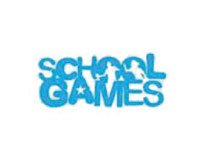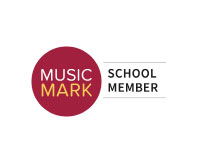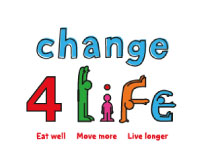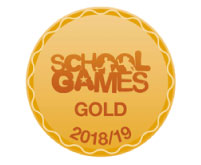Statement of Intent
We want all children at Egglescliffe to enjoy Mathematics and to experience success in the subject, as well as an appreciation of the beauty and power of Mathematics. Our Maths provision allows children to understand and apply mathematical ideas by dealing with increasingly complex problems whilst equipping them with the procedural fluency required. Teaching is delivered through the mastery approach of low threshold/ high ceiling model. Small steps within lessons ensure all children have the opportunity to make progress. Children with SEND have specific targeted support according to individual and group need.
It is our intent that a high-quality teaching of Mathematics, as a core subject, will enable the children to become fluent in the fundamentals of Mathematics, to reason mathematically and to apply their understanding when problem-solving. At Egglescliffe, these skills are embedded within our Power Maths lessons and developed consistently over time through all key stages from EYFS to Y6. We are committed to ensuring that children are able to recognise the importance of Maths in the wider world and that they are also able to use their mathematical skills and knowledge confidently in their lives in a range of different contexts. We want all children to enjoy Mathematics and to experience success in the subject, with the ability to reason mathematically. We are committed to developing children’s curiosity about the subject.
Through the teaching of maths, we aim to develop:
- A positive attitude towards maths and a recognition of the importance of maths in the wider world.
- The children’s curiosity about the subject, through a process of enquiry and experiment.
- An ability to solve problems and think logically in order to work systematically and accurately.
- An ability to work both independently and in cooperation with others.
- Competence and confidence in pupils’ maths knowledge, concepts and skills.
- An appreciation of the creative aspects of maths and an awareness of its aesthetic appeal.
Implementation
We endeavour to provide a Mastery Curriculum to support all children in reaching their full potential in preparation for secondary school and adult life. To ensure whole school consistency and progression, our school uses the DfE approved ‘Power Maths’ scheme.
Mathematics is taught through three main types of questioning:
- Varied Fluency
- Reasoning
- Problem Solving.
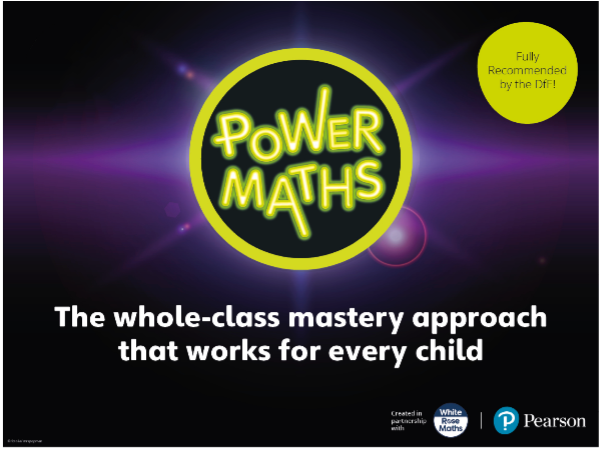
Mathematical topics are taught in blocks, to enable the achievement of ‘mastery’ over time. Each lesson phase provides the means to achieve greater depth, with more able children being offered rich and sophisticated problems, as well as exploratory, investigative tasks, within the lesson as appropriate. This helps the children to deepen their understanding of mathematical concepts, becoming more confident and competent and ready to face new challenges. It is important that the children are secure in their knowledge and understanding across all mathematical areas and show resilience in their learning.
Mathematics within the Early Years is also guided by the requirements and recommendations set out in the Early Years ‘Development Matters’ EYFS document – ‘Number’ and ‘Shape, Space and Measure’.
Power Maths – Letter to Parents
Power Maths – Presentation



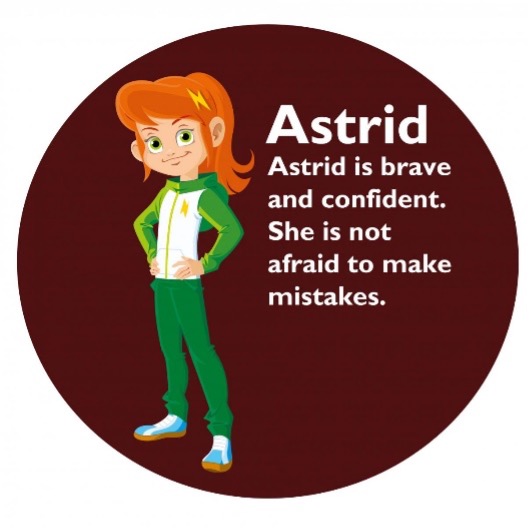
Impact
Our school supports the children in developing their collaborative and independent skills, as well as aiming to ensure that all children experience challenge and success in Maths by developing a growth mindset.
We aim to develop:
- A positive attitude towards maths and a recognition of the importance of maths in the wider world.
- The children’s curiosity about the subject, through a process of enquiry and experiment.
- An ability to solve problems and think logically in order to work systematically and accurately.
- An ability to work both independently and in cooperation with others.
- Competence and confidence in pupils’ maths knowledge, concepts and skills.
- Majority of children will achieve age related expectations
- The children will develop their collaborative and independent skills
- All children will experience challenge and develop a growth mindset to approach Maths with confidence
- Staff will be familiar with the progression in skills and gain in confidence in using the Mastery approach to teaching Maths.
The school has a supportive ethos and our approaches support the children in developing their collaborative and independent skills. We specifically plan opportunities to extend ‘real-life’ experiences for depth of understanding and application ensuring our children are ready for their next stages of their education. Our small step approach addresses preconceptions by ensuring that all children experience challenge and success in Mathematics. Regular and ongoing assessment informs teaching, as well as intervention, to support and enable the success of each child. These factors ensure that we are able to maintain high standards, with achievement at the end of KS2 well above the national average.
Maths Support for Parents and Carers
Maths Curriculum Programmes of Study
What will my child learn?
| Year Group | Power Maths Overview |
| Reception | Download |
| Year 1 | Download |
| Year 2 | Download |
| Year 3 | Download |
| Year 4 | Download |
| Year 5 | Download |
| Year 6 | Download |
Power Maths Calculation Policy
Key Vocabulary List
| Year Group | Download |
| Year 1 | Download |
| Year 2 | Download |
| Year 3 | Download |
| Year 4 | Download |
| Year 5 | Download |
| Year 6 | Download |
| Power Maths Key Vocabulary Glossary | Download |
How Can I Help My Child with Maths?
Key Tips
Praise effort and not ability. For example saying ‘You’ve worked really hard at your times tables today’ rather than ‘You’re so clever!’ is more encouraging.
Try not to pass on your own fears and anxieties about maths. Instead encourage your child’s enjoyment of the subject.
Find Maths in everyday life – counting, going to the shops, I spy, cooking etc.
Play games with dice!
It’s not about speed.
How to help younger children
Number Recognition: Recognising numbers is one of the most important early steps for Maths. You can begin by pointing out lots of different numbers to your child, such as the numbers on front doors, on the front of buses, on T-shirts, on television.
Activities at home:
Number Hunt. Children have to find the numbers on post it notes hidden around the home and then put them in order. You could add variation to this by not including a number and seeing if they notice or by using a mixture of digits, amounts etc!
Counting Cars of Different Colours. A road-trip is incomplete without car games, be it I-spy or just singing songs. Make your road-trip with children fun and informative with this counting game. The objective of the game is to count the number of cars of a specific colour that you pass by. Whoever gets the most in the journey wins.
Painting or colour by Numbers. Children colour according to the colour schemes that are coded with fixed numbers.
1 to 1 correspondence: As part of learning to count, a child needs to develop ‘one to one correspondence’. This means being able to match one object to one other object or person. Touching each individual object helps with this.
Activities at home:
Count a lot. Make a counting game out of everyday activities whenever you think of it. Count the chairs as you set the table, the blocks as you build a tower, the books as you read aloud, and the train cars as you chug along the track.
Count motions. Have your child count as you clap or hop. If this is difficult, have your child set out one counter for each movement. They can count the counters after you are finished.
Count objects in a line. Young children can be are easily confused when you ask them count a jumble of objects in a pile; they often count objects twice. Begin simply by putting a small number of objects in a line and asking your child to count them. Begin with just two or three objects; when your child consistently gets that number correct, add more.
Move the same objects around, and count again. Take the objects out of a line and scatter them. Have your child count them. Then push them together in a very tight line. Ask your child to count once more. Eventually your child will understand that rearranging a group of objects does not change their total number.
Estimation: Estimating and learning about quantities are both important skills for enabling children to come to judgements about numbers, and to understand the idea of what might be “too little” or “too much”. Children love guessing games and so they naturally learn how to estimate.
Activities at home:
Guessing games so they naturally learn how to estimate. A way to practise this skill is to ask the child to guess the number of biscuits in a jar. Then count them and compare. Use the language of ‘Too many?’ and ‘Not enough?’
Ordinal numbers: Ordinal numbers describe an ordered sequence, such as “first”, “second” and “third”. Understanding them helps children to structure their day, and means that they can follow instructions in the right sequence or make a list.
Activities at home:
What’s your favourite? Talk about your favourite foods, colours or songs together. What would be their first choice? What about second and third choices, and so on.
Toy car race. Have a race with toy cars, and ask your child “Which car was first?”, then “Which car was second?”, “Which car was third?” and so on.
One more, one less: Learning about “one more” and “one less” than a given number is important for estimating and being able to assess quantity, and leads on to simple addition and subtraction.
Activities at home:
Sticky notes numbers. Write the numbers one to ten on sticky notes, stick them in a row, then ask your child to pick a number and quiz them on which numbers come before and after the one they have chosen.
Secret number. Think of a number, and then ask your child to guess your secret number. Tell them that, for example, your secret number is “one more than 6” or “one less than eight”. Ask children to come up with their own secret number too and try to find out what it is. You could play this sitting on a bus or a train and look for numbers on the bus or in the carriage – a bit like I Spy! – To start the game off.
Playing Maths Games
Maths games don’t have to be computer-based. There are lotsof ways in which you can bring maths to life for your child through simple games and activities. Whether out shopping, using the context of money to help develop your child’s skills, or helping them to better understand measurement when baking or putting together the new rabbit’s hutch, there’s always an opportunity for a ‘maths moment’!
Board games can be great for developing a child’s maths skills too! Playing these can be a really powerful way for young children to become comfortable with our number system, spotting patterns and literally playing with numbers.
Some of our favourite board games (and others) are below…
Dice are an amazing way to bring numbers to life and can be used in so many creative ways to have fun… and learn at the same time!
Link to Number Games developing number fluency.
Monopoly
Snakes and Ladders
Darts
Dominoes
Useful websites
https://thirdspacelearning.com/blog/home-learning-resources/ Thousands of maths resources for parents.
https://www.bbc.co.uk/bitesize/subjects/z826n39 Maths homework help online for children of all ages.
https://primarygamesarena.com/Subjects/Maths Learn maths through games online!
https://www.topmarks.co.uk/maths-games/hit-the-button Excellent website and app to practise times tables and number bonds homework.
https://www.mathsisfun.com/ A simple but very useful free maths homework help website.
https://mathszone.co.uk/ The ultimate site for free maths homework help with links to lots of other websites.
www.mathletics.co.uk – Subscription. A focus on basic skills, challenges and competitions.
http://www.primaryhomeworkhelp.co.uk/maths/ – Homework support and links to fun games and activities.
https://teachingtables.co.uk/ – Times tables practice.
Mathematics is also encouraged at home with the support of parents to complete homework and have regular practice on Times Table Rockstars.
Times Tables Rock Stars
Every child has a #TTRockstars account to use at home and in school. Times Tables Rock Stars is a carefully sequenced programme of daily times tables practice. It is important that every child plays regularly I order to improve fluency of recall.
Children can practice in the ‘Garage’, earn their rock status in the ‘Studio’ or compete against their peers in the ‘Arena’. They can even challenge their peers to a battle in ‘Rockslam’ or play against children from all around the world in ‘Festival’ mode!
Click the link to log in to your account. https://play.ttrockstars.com/




